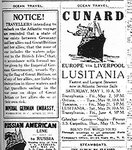parsifal
Colonel
Let's just call it he got by with a little help from his friends. They'd be serving thuringers and Spaten Optimator in the London pubs if he didn't.
If that had happened, the US would be celbrating the both the Fuhrers and emperors birthday instead of Indendance day. Nobody on the allied side, least of all the Americans were able to tackle the Axis menace alone. The nation that came closest to doing that was Britain, not the US

